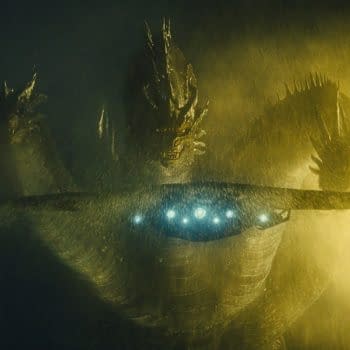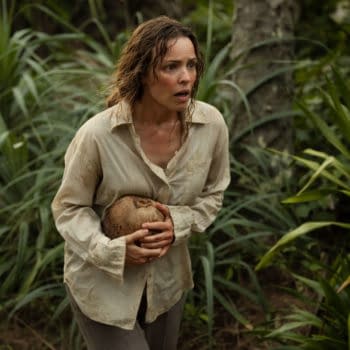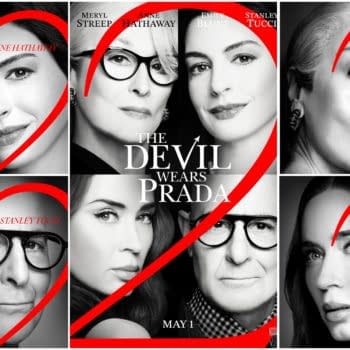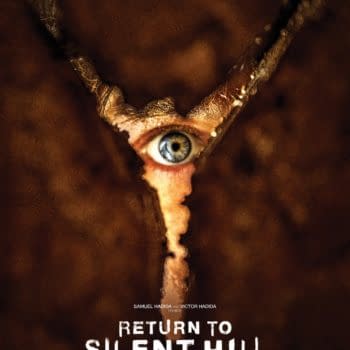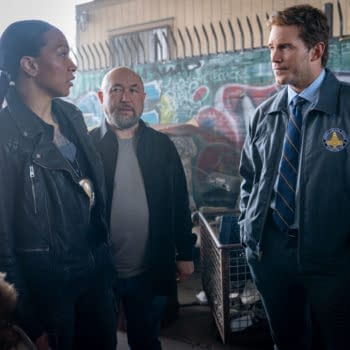Posted in: Movies | Tagged: biopic, film, HRL, lbj, movie, Review, woody harrelson
LBJ Review: A Compelling Film About An Uncompelling President
We've seen enough JFK films over the years to fill a medium-sized shelf of DVDs, but what we've not seen a lot about is his vice-president and the man who would succeed him as the 36th president of the United States, Lyndon Baines Johnson. At the same time, neither have there been throngs of moviegoers beating down the doors to the studios for a film about him. However, LBJ, the new biopic starring Woody Harrelson, is an intriguing perspective into the years leading up to JFK's assassination.
The film is told mostly as a frame story, slowly moving through the events in Dallas on the morning of November 22nd, 1963. President Kennedy, the First Lady, LBJ, and the rest of the presidential party disembark from Air Force One. It's during the opening moments that we see all the cult of personality around the Camelot family, while LBJ is barely noticed as the crowd reaches out to shake the President's hand.
It then begins to jump back in time and work its way forward, spanning from the early days of the campaign trail with Bobby Kennedy asking LBJ if he would run against Jack or stay out of it. He finally says he'll be staying out of the contest, but then we cut to the Democratic National Convention with Jack and Lyndon as the two frontrunners. Jack handily wins the nomination, but the Kennedy camp is solidly against Lyndon. While they're in the midst of working up a list of vice-presidential candidates, JFK, in one of his impulsive moments, shows up at LBJ's suite and offers him the position.
It's an uncomfortable alliance, but it's needed to bridge the gap between Kennedy's Northers and Johnson's Southern Democrats. The film is another uncanny example of timely relevance and the heightening racial tensions of the later '50s leading up to Kennedy's vision of a civil rights bill. Johnson is presented as a dyed-in-the-wool Texas Democrat with a legacy of racism instilled in his party and, at least in part, in himself. It's the progressive realization of perhaps some of the error of his own ways and of the behaviors of his fellow Southerners that makes the most interesting aspect of the film.
The flashbacks do finally catch up to the moment of the assassination, and then the focus moves to LBJ as he grapples with finally having what he'd always wanted (the presidency), but in a way he never wanted. There's no missing the stark parallels to the riots of recent years and in much of the current political climate (though over the last 50 years, having jumped across the political aisle).
The makeup doesn't do a complete transformation from Harrelson into Lyndon; however, it does help keep us from seeing only the actor. He does an excellent job of capturing his mannerisms, quirks, and language. It's sure to get some award nominations for the makeup; the recreation of the famous Johnson earlobes alone are worth a nod.
Is it a brilliant or great film? No, but it's a satisfying one. It gives a view into an era where the spotlight of the Kennedy aura effectively overwhelmed everyone else when he was alive, and only more so after his death. LBJ doesn't miss the irony that in order to be welcomed in as president, he had to even more fully embrace the legacy of his predecessor.
Whenever dealing with LBJ, one will nearly always be drawn to the end of his full term in office with the war in Vietnam and everything that went wrong there. But this film isn't about that term — it's about the time before the fall, when a man who was a Southern good-ol'-boy realized that civil rights were indeed for everyone. That's a message that stands to be reminded in the 21st century.





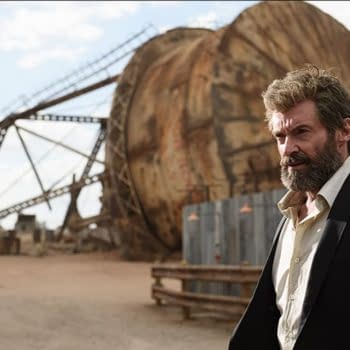
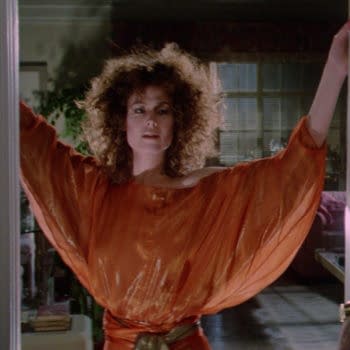
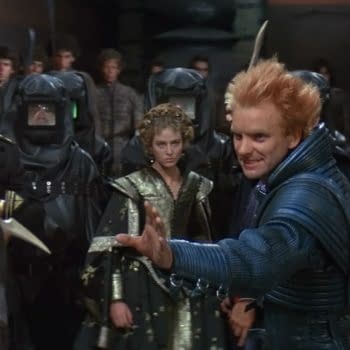
!['Rocketman' Soars With Warts and All Elton John Story [Review]](https://mlpnk72yciwc.i.optimole.com/cqhiHLc.IIZS~2ef73/w:350/h:350/q:75/rt:fill/g:ce/https://bleedingcool.com/wp-content/uploads/2019/01/rocketman.3-350x350.jpg)
